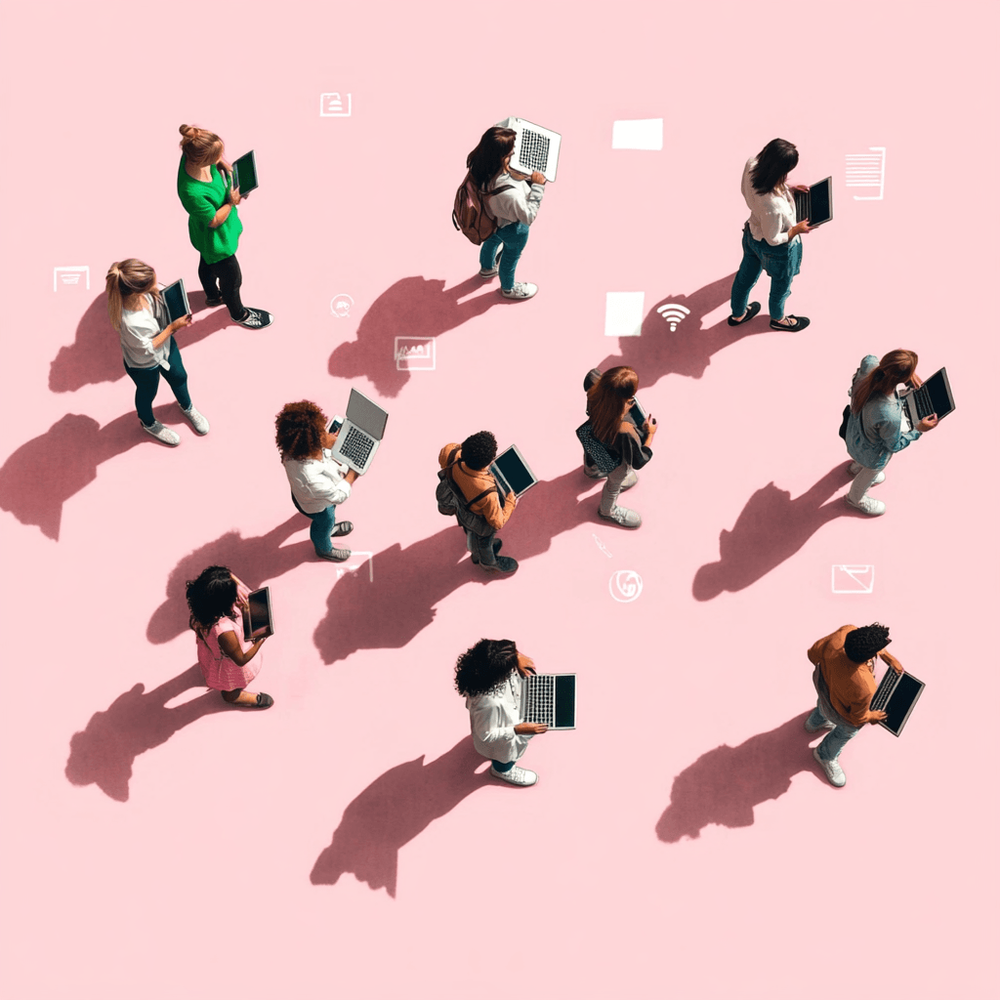Blockchain, Money, and the New Social Networks
How Blockchain and Money Are Changing the Way We Connect
The internet made it super easy for us to connect with people, share memes, and collaborate across the world. But here’s the thing: while the internet solved a lot of problems with communication, it didn’t solve our trust issues. That’s where blockchain comes in. It’s a technology designed to make transactions safer and more transparent without needing a middleman like a bank or a big tech company. So, what does this mean for our money, markets, and the way we interact online? Let’s break it down.
Why Do We Even Need Money and Markets?
Before we get into blockchain, let’s talk about why money exists in the first place. Imagine trying to trade your sneakers for a slice of pizza. It’d be a nightmare. Money fixes this problem by giving us a common way to measure value, making it easier for us to trade and buy stuff without endless haggling. Money Is the Ultimate Time-Saver: It speeds up transactions and helps everyone agree on what things are worth. Markets Make It Happen: Markets aren’t just places like Wall Street. They’re any system where buyers and sellers come together to trade. They’re like the world’s biggest group chat, where everyone is trying to get the best deal. By using money, we don’t have to trust every person we deal with — we just trust that the money is worth something. It’s this trust in the system that allows huge economies to function smoothly.
Adam Smith Knew What Was Up
Adam Smith, an 18th-century economist, explained how products are made through teamwork, even if the workers never meet. He used the example of a simple wool coat — it takes shepherds, factory workers, merchants, and tailors to make it. They all do their jobs without needing to know each other because the market coordinates everything. Since Smith’s time, we’ve taken this idea to the next level. Now, thanks to the internet and global trade, millions of people can collaborate across countries. Instead of trusting individuals, we trust the system of money and markets to get us what we need.
Bigger Markets = More Innovation
Smith also noticed something cool: when markets get bigger, everyone’s productivity goes up. It’s like when your favorite band suddenly blows up — they can make more music, tour more cities, and reach more fans. As the market grows, so do opportunities for innovation. Money Keeps It Simple: It makes trading easier, reduces costs, and gets rid of the hassle of bartering. This opens the door for new ideas and products. More Players, More Ideas: The bigger the market, the more people get involved, leading to more creative solutions and a more efficient economy.
The Internet Changed Everything — Now Blockchain Might Do It Again
The internet connected the world, making it easy to chat with friends overseas or buy sneakers from halfway across the globe. But here’s the catch: the internet didn’t fix trust issues. We still rely on banks and companies like PayPal to verify our transactions. Blockchain is changing that by creating a trustless system — a way to secure transactions without needing a middleman. Decentralized Trust: Blockchain is like a giant, shared Google Doc where every transaction is recorded. It’s public, so everyone can verify what’s happening, and no one can secretly change the data. Safer Transactions: Because of its cryptographic backbone, blockchain makes it almost impossible to hack or alter the records. It’s like having a digital lock that can’t be picked.
Price Signals and the Wisdom of Crowds
Economist Friedrich Hayek pointed out that prices aren’t just numbers — they’re messages. When the price of avocados goes up, it tells farmers there’s a high demand, so they grow more. This price system helps coordinate the economy without anyone giving direct orders. It’s a bit like how likes and retweets guide what content goes viral — it’s all about feedback. Decentralized Coordination: Prices help millions of people make decisions without needing a central authority. It’s like the internet itself — a giant web of connections where everyone plays a part. Blockchain Adds a New Layer: By removing the need for banks or centralized platforms, blockchain makes this coordination even more efficient. It’s like crowdsourcing trust and letting the network do the heavy lifting.
The Big Picture: Blockchain Could Change More Than Just Money
Just like the internet transformed how we share information, blockchain has the potential to revolutionize how we handle trust and transactions. It’s already making waves in finance, but the possibilities go beyond that: New Ways to Collaborate: Imagine building a startup without needing a bank loan or using smart contracts to automatically pay freelancers when their work is done. Blockchain could enable new forms of business and social interactions. Secure Social Networks: In the future, your online connections might be verified through blockchain, making it harder for bots and fake accounts to scam people.
TL;DR
The internet made it easy to connect, but it didn’t solve our trust issues. Blockchain steps in by creating a system that’s transparent and secure without needing middlemen. It could reshape how we handle money, make deals, and even build online communities. Just like how money and markets scaled up our ability to trade, blockchain could be the next big leap in how we connect and collaborate. In short, blockchain isn’t just about crypto — it’s a tool for creating new kinds of relationships and transactions that are safe, transparent, and global. If you’re excited about the future of tech and finance, it’s worth paying attention to how this evolves. The revolution is just getting started.

Recent News
All Time High • Live
Have questions or want to collaborate? Reach us at: [email protected]










